Achickwitbeatz presents the Instrumental Intel podcast, bringing you information instrumental to your artistic career including music industry news & tips, insights & interviews, and beats for your inspiration. Listen on Saturdays at 7 pm EST on Grander Radio and Achickwitbeatz.com.
Follow on Facebook, Instagram, Twitter, YouTube Audiomack & SoundCloud, and subscribe on your favorite podcast platform. Download the Grander Media app to listen to Grander Radio on the go.
- Art
- Independent Labels
- Internet Radio
- Music Documentaries
- Album Reviews
- Music History
- Music Industry News
- Free Game Friday
- Free Downloads
- Poetry
- Books
- Interviews
- Did You See It?!
- Hip Hop History
- Hear Here
- Music News
- Hip Hop Documentaries
- Music Marvels Radio Show
- Think Piece Thursday
- Mini Documentaries
- Instrumental Intel
- Music Humor
- Indie Analysis
- Conversations & Quotables
- Music
- Resources for Artists
- Podcasts
- Beats/Instrumentals
- Music Education
00:01
Hey, thank you for tuning in to instrumental Intel. I am your host, music producer, Achickwitbeatz, and I'm glad that you're here with me. Today's episode has music industry news, instrumentals by me for your inspiration, and later, my special guest, the founder and chairman of Intercept Music, Ralph Tashjian, will be joining me. So it's going to be a great time. I'm really excited to be bringing this episode to you. So before I go ahead and drop that first beat, I've got to give a shout-out to my home station.
00:28
Grander Radio out of Grand Rapids, Michigan. And with that, let's go.
00:47
[BEAT BREAK]
08:32
Hey, this is music producer Achickwitbeatz, and you're listening to my podcast Instrumental Intel.
08:45
[BEAT BREAK]
14:45
Alright, I'm back with the music biz brief. First up, SoundCloud is clarifying concerns about a clause in its updated terms of use that appears to allow user content to be used for AI training. After a recent article pointed out the February 2024 change, SoundCloud stated that it has never used artist uploads to train AI, and it does not allow third parties to scrape content for that purpose. Instead, the platform says AI is only used for features like recommendations,
15:14
fraud detection, and content organization. However, they did not explicitly rule out future AI training. SoundCloud emphasized its commitment to artist control, transparency, and ethical AI development. Next, the sudden firing of U.S. Register of Copyrights, Shira Pelmutter, has raised alarms in the music industry. Just one day before her dismissal, her office released a report suggesting that training on AI-copyrighted music without a license likely exceeds fair use.
15:43
and warned of potential economic harm to artists. Her removal following similar actions against the Librarian of Congress has sparked concern that the Trump administration is siding with tech interests over creator rights. Industry leaders fear this could weaken protections for artists as AI companies continue lobbying for broader access to copyrighted works. Also, Intercept Music, a distribution and marketing platform for independent artists, has secured $50 million to acquire US and Latin music catalogs.
16:12
The company says it's targeting under-monetized catalogs and will use its AI-powered tools and marketing tech to boost earnings and reach. Intercept launched in 2022 with support from Methodman and offers access to major streaming platforms, DIY promo tools, and merch services. With over 2 billion streams across its roster, Intercept plans to expand its operations and catalog management efforts, especially in the fast-growing Latin music space.
16:39
The company plans to acquire full or partial rights while maintaining relationships with original creators. So this supports Intercept's mission to empower independent artists and rights holders with transparent, data-focused catalog management. The funding will also expand their operations as they work to reshape music rights management. Next, Bill Ackman has stepped down from the board of Universal Music Group due to new executive and board obligations tied to recent investments.
17:04
Ackman, whose Pershing Square firm has been a major investor in Universal since 2021, praised the company's leadership and future growth potential in his farewell statement. His exit follows their first quarter report showing 9.5 % year-over-year revenue growth and comes amid the company's push for a U.S. stock listing and continued focus on an artiscentric streaming model.
17:25
Also, Apple Music has launched a new global viral chart playlist on Apple Music and Shazam, showcasing the top 50 songs people are discovering through Shazam in real time. Updated daily, the playlist ranks songs based on weekly growth and Shazam activity, offering a snapshot of what's trending in the real world. The charts are also available on Shazam's website and can be filtered by country. Next, Apple Music and Universal Music Group have teamed up to launch Sound Therapy.
17:52
a wellness-focused audio experience designed to help listeners relax, focus, or sleep. Available exclusively on Apple Music, the collection blends popular songs with science-backed sound waves like gamma, theta, and delta frequencies. It's part of Universal's growing investment in music wellness, supported by its in-house venture Solos. This taps into the booming global wellness market, expected to reach $8.5 trillion by 2027.
18:18
Also in news, Merlin CEO Jeremy Ceroto will step down at the end of 2025 after leading the organization since 2020. He'll work with the board to ensure a smooth transition as they search for his successor. Under his leadership, Merlin expanded its support for independence rights holders navigating an increasingly complex digital landscape. A subcommittee has been formed to oversee the recruitment process. Next, Francis Royalty Collection Society
18:45
Paid out nearly $1.5 billion to composers and publishers in 2024, up 12 % year over year. Total collections reached $1.73 billion, with international revenue making up nearly half. Thanks to growth across streaming and social platforms, domestic collections rose just 2%. The Society also partnered with Deezer on an art-centric publishing model and plans to launch a creator networking platform and endowment fund in 2025.
19:13
And finally, Live Nation is bringing back its $30 ticket program for summer 2025, giving fans access to more than 1,000 concerts across the U.S. and Canada. The lineup spans pop, hip hop, Latin, country, and more with artists like Halsey, Nelly, Avril Lavigne, and The Offspring. The sale starts May 21st, and additional artists will be announced throughout the summer. The $30 price includes all fees but not taxes.
19:41
Alright, that's it for this week's music biz brief. I'm gonna take a quick pause for the cause, and then I'll be back with my special guest, the founder and chairman of Intercept Music, Ralph Tashjian. Keep it locked.
19:58
[BEAT BREAK]
29:54
Hey, this is music producer Achickwitbeatz, and you're listening to my podcast Instrumental Intel.
30:10
[BEAT BREAK]
34:50
Hey, I'm Achickwitbeatz, multi-genre music producer and strategist to indie artists and labels. Visit achickwitbeatz.com for resources for artists and instrumentals in various genres available for songs, vlogs, blogs, podcasts, themes, TV, film, commercials, and more. Once again, that's achickwitbeatz.com. That's A-C-H-I-C-K-W-I-T-B-E-A-T-Z.com. Let's make something happen.
35:20
Hi, thank you so much for tuning in to Instrumental Intel. I am your host, music producer, Achickwitbeatz, and I'm so glad to announce that I have in the virtual building with me today, Ralph Tashjian, the founder and chairman of Intercept Music. And so, you know, first of all, I want to thank you for taking time out of your incredibly busy schedule to come and speak with me and the listeners. And if you could maybe give people a little bit of background on what Intercept Music is. Well, actually, let's start with you first.
35:50
The man behind it all. Your relationship with music and how you got started with this. Sure. Achickwitbeatz, thanks. I appreciate the time. I love this. A big part of who I am and what I've done in my life, and this great career that I've been fortunate to have, it's important to give back to me. I hope there's some words of wisdom here somewhere.
36:19
that could help young developing artists and labels to help enhance their career and have growth. So that's really important to me. Thank you for the opportunity here. Absolutely. You know, I started as a young guy here in San Francisco, California. I'm currently here now. I spend my time between Mexico City and San Francisco. We have an international company, Intercept Music, that I'm the chairman of, that I co-founded.
36:49
But I started my career here in San Francisco promoting records. I got very lucky. I was a young musician, a drummer, a bad one at that. And there was no career for me as a musician. So I was able to get the next best thing, and that was promoting records. And at a young age, at 24, 25, I went to work for MCA Universal here in San Francisco and got
37:17
promoted to Seattle and ran that market, and then got promoted to New York and ran that market, and have nothing but wild stories to tell about that. And then I got hired by a company.
37:33
20th century records and about the mid 70s and I ran that promotion department for a number of years and what an incredible journey on that one because I was right behind and responsible for you know two Academy Award winning singles with Maureen McGovern the morning after and there was another one in there and then all of the Barry White stuff Love Unlimited I marketed
38:03
and promoted all of that right from the inception. That's my, you know, I have a few gold records behind me, and those are my favorites, okay. So I was very fortunate and then went to, from there, went to Island and spent some time at Island before it was Def Jam and Marley and Robert Palmer and all of that stuff. And then from there,
38:32
And about 1980, I went to, I started promoting records independently. At that time, there was, you know, people that had real relationships with radio stations; it could actually move the needle and get records played. I did that for quite some time, for about 10 years. And that was like a...
38:53
It was like a hired gun, right? Just going out and getting records played. And I was, remember exactly where I was. And I looked at myself in the mirror and I go, wow, this is not what I wanted. This is not what I did. It was like, let's make a deal. I've lost, you know, the whole the love that I have for music. So I started my own label in...
39:20
uh 2000 and it was a hip-hop label primarily out of the bay and we had a lot of killer Mike we had some international stuff we had um um rock and then all of the local stuff the uh you know a lot of the local hip-hop stuff west coast hip-hop stuff we did really well for a lot of years we did really really well and you know one of the things that that i like to tell young people uh
39:50
And anybody in general that, you know, was building their career, building their business. When you're an entrepreneur, you just go, right? And you have to be able to have the instincts and the savvy.
40:07
to look at the marketplace and know when it's time to, and maybe to reinvent yourself. Maybe if it's a creative thing, maybe your beats are dated, maybe you need to look at, maybe you need to update your sound. I don't know, I'm not a creative person, but what I've been able to do it's a gift is that I've been able to reinvent myself. And when I saw that things weren't going the way.
40:36
that there was any future, I was able to adjust. So I had the label and it was, you we had some hits, and I saw a big hole in the Latin market. So I started to move into the Latin market and do a little bit of that. Had a top 10 hit with a Daddy Yankee protégé, little kid named Miguelito. He was the youngest person ever to win a Grammy. Wow.
41:03
And we put out a record, and we went to top 10 in Billboard, and I think we sold about 2000 CDs. And I said, okay, it's either take your toys, Ralph, and go home, or it's time to reinvent yourself one time and one more time. And so here I am. There's said music. So I knew I had to go into the digital space. The writing was on the wall.
41:28
You know, we had the old traditional deals at record companies where they really owned everything. They were accounting to you six months after the release and paying you 90 days after that six months. Well, that was virtually impossible to compete with a digital distributor that was paying the artists every 30 days. Right. You don't compete. So here we are. I said, OK, well, this is what we've got to do. And I started to build.
41:58
Intercept Music, along with my partner, Todd Turner. It's and I want to make sure that I talk about something that I want. It was a miserable failure for about two and a half years, I completely had the wrong developers. I had the wrong people, I had the wrong thing, and
42:21
I was able to adjust and get out of that. And until I found my partner, Todd Turner, who's a tech genius, we weren't able to build a company now where we have billions of streams, hundreds and hundreds of artists, and independent labels. We built a platform that we think is second to none with respect to two things that are critically important.
42:51
In everything that you read about independent music, independent distribution, independent distributors, and the digital world. That is transparency and customer service. And we've done those two things. And we do those two things, which separates us from our competitors. Absolutely. know at least as far as distribution goes,
43:20
I've seen and heard so many different complaints, and those are the top two complaints that people have with some of the popular distributors. No question. Yeah. So, I mean, you your experience lets you know that that's kind of what you needed to focus on. You know, can you talk a little bit more about what the distribution process is like using Intercept Music? Yeah, you know, we like to call it technology with transparency, you know, you know,
43:49
How to transform.
43:53
Transform how you release your music.
43:58
Um
44:00
We created a dashboard that allows, let's say, you're an independent label and not just not an artist, but a label. We've created a dashboard where an independent label can come in, sign up as a label, and then have all of the artists that they sign underneath them. Basically, white label come through our system. And with their dashboard, they can manage their label and inside of their label.
44:31
They could show their artists what their streaming numbers look like and what kind of revenue they generated without them seeing all of the other artists on that independent label. Nice. So it's designed and created for the independent labels and artists as well. But we like labels.
44:59
And there's another component that we put to it that we're really proud of, and that's the merch component. So we have merch on demand. We have a direct link through Shopify. The artist gets 30 % right off the top. So if they sell a $20 t-shirt, they make 30 % off of that, which equates to about 5,000 streams.
45:26
So every t-shirt you sell financially is the equivalent to about 5,000 streams. That's just so bizarre, looking at the way that things are set up these days. So, yeah, well, mainly with the experience that you have for going back to when you started through what you've seen now, how challenging do you think that is for us to actually understand the economics of it and how streaming is set up?
45:56
to, you know, benefit. It's everything like in life is a double-edged sword. You know, there's pros and there's cons, and there is, believe it or not, there's a lot that's the same. Okay. So if you had a single in the sixties, you still had to market it. However, you marketed it was whether whether it was radio or whether it was going around to DJs yourself and bringing it to them.
46:23
Now, today, you have social media, you still have to market it. I don't know how many million songs a month are coming out, right? And you're just, you have to rise above the noise. That's a term we like to use.
46:39
Its marketing is a critical key to, and social media is a critical key into the success of an artist and a label today. And how you communicate with your artists, with your fans, is critical. And so we think that that's a big part of growth. One thing we've been able to do is we've incorporated some AI, not AI music.
47:09
But AI that could help you create a marketing plan designed for you. Rather than a marketing plan designed for an artist that doesn't, you that you can always create an elaborate marketing plan with an endless amount of money, but nobody has that. You need to create a marketing plan for yourself, how to advertise, where to advertise.
47:34
What play listing you should do in order to get from here to there? Something that makes sense based on your budget, based on your socials, and based on how many followers, listeners you have, monthly listeners you have on Spotify. So we've incorporated some of those things. Yeah, I'm glad that you mentioned that because there are a lot of positive uses for AI and music. I think a lot of times lately it's just kind of synonymous with generative, but there are so many other ways that it can help.
48:03
With technology. Yeah, aside from, you know, just writing music just to be able to market it, and you know, I mean, yeah, there's a lot of different things. I actually did a blog post about it a while back, just because I kept hearing so many things like, AI is bad for music. Well, you know, there's other ways to use it besides what most people are thinking, with that doesn't replace creators. Yeah, you're absolutely correct. And if it's used
48:28
properly, can really, based on your, you if you plug in the right information, and we had to create that, how to speak to it, right? But you create what kind of, what genre it is, country, urban hip hop, pop, rock, or whatever, and you know, how many followers you have, what your socials look like, and how you should market to take yourself to the next level. It'll give you a pretty accurate outline of some things that it recommends that you should do.
48:57
Now that doesn't mean you do them all, but it means that you pick and choose, and at least you have something to base whatever you're spending the money on. One of the other things that we use AI for that is really interesting because one of the things that we've noticed with independent artists, especially not label so much, because if it's an independent label, there's your normally some sort of a label manager that's making sure the artists do their, you know, posts.
49:25
frequently or the right way, or get their messaging out, right? So we use AI to help you create posts and we have a technology in our platform that allows you to post on all of your socials from our dashboard, scheduled out for 30 days in advance and you could use AI to help you create the posts, maybe using the lyrics of the song or whatever you program into it.
49:54
We have that in our system, and then it'll give you 30 posts to put out, and you could edit those posts. Oh yeah, that's corny. I don't want to do that, but at least it gives you ideas or something to think about. You take them or you leave them. Right. So it's a, it's a sophisticated platform. That's excellent. Um, and just to think about the time that it would save. Cause I know how long it takes to, you know, kind of consider like, you're thinking, you keep it, you need ideas, right. In order to keep it fresh.
50:25
So I think it helps. Absolutely. So yeah, I would like to ask about the recent 50 million that you have for a music catalog acquisition. First of all, congratulations. It's a big deal. Yeah, it really is. It's a big deal. And it's interesting because...
50:48
There's a lot of money out there for catalog acquisitions.
50:55
Now, you know, our company, Intercept Music.
51:03
is you would consider us somewhere in between a Virgin, Universal, and a Distro Kid, for instance. We're in between. We're that company that's a little bit more that we feel that we're more, you know, it's about, we're not there to just put out a single, and we're there for the artists and the labels that are a little bit more serious about their career.
51:33
Right. And these catalog acquisitions that are happening at a high level, OK, are really for these are really just to make it. These are primarily Wall Street people. They're not necessarily music people because they see an asset. Asset is like a piece of property, right? You know what you.
52:01
hope that it goes up in value based on what's going on around it. So they're big deals, right? They're catalogs that are being acquired, and they're able to be monetized because they're X amount of monthly listeners and how much money it's generating every month. And there's a certain multiple that they use as a formula, and that's how they come up with a number. But there's a whole new part of the catalog.
52:30
pieces, which kind of where we fit, that's in between, just like our company. Our company's in between, you know, a tune core and Virgin. There's catalogs out there that are in between some that aren't generating a lot of money, but there is a long-term value to them. Some are gospel catalogs, which I've got two great ones right now. And so some of them are
52:57
monetized currently, and some of them. I had a call this morning with one that just has all of the content, some on that, some on real, some on quarter inch, some on different, you know.
53:13
And here it is. So yes, we're here. It's like a self-propelling model for our distribution company. Yeah, it does. Okay, so I'm going to try to be careful with how I word this question because I'm not trying to get you to give out the secret sauce or anything. But what are some of the things that you look for with these acquisitions?
53:41
You mentioned like with the, you know, bankers and stuff actually coming in, investing in the assets, a lot of this stuff kind of tends to be evergreen. So are you looking for like a certain feeling or, know, just the talent base for when you choose? No, we're looking at potential revenue. Okay. So, so there, so some like the financial, like the, uh, the, institutional financial companies, the names of the world that have gotten big funds to go out and do this. They have a formula.
54:10
Right now, look use Springsteen as an example. They can probably come up with a valuation to buy the Springsteen catalog, not that that would be for sale because it's probably still with Columbia, but just using that as an example based on what they're currently streaming.
54:33
Those numbers are there. Get the statements, a year or two of statements from Columbia Records, and they can see that every Springsteen title, how much Springsteen's generated and that's how they would base their offer. Yeah. It's pretty much, sometimes it's six times. It could be up as high as 10 times yearly revenue. Now,
54:58
Other ones that are on DAT and quarter-inch tape, it's kind of a little bit more of a kind of a gotta get a feel. You know, we had one this morning that had great gospel content, Reverend James Cleveland, and a number of different things. And, you know, we'd have to kind of guess along that, right? We'd have to guess that. So it's a formula and, and some of their companies that just appraise some of these catalogs as well.
55:26
Just like you'd go out and get a house appraised. Yeah. Um, lot of people listening probably don't know this, but my background before actually diving into music, um, I got my bachelor's in marketing and my master's in finance. So, yeah, it was actually, yeah, like the price to earnings ratio and all that. So yeah, so yeah, get what you mean. And, um,
55:51
You know, it's just kind of been interesting to watch all these deals and stuff that have gone down. So yeah, that again, congratulations on the 50 million. You very much. It's been a, Hey, listen, we've, you know, I want to just, this is, this is hard work. You have to have determination. You have to believe in yourself. You, you, you, you have to, you have to not give up. You know, you've got to keep moving forward.
56:20
no matter what. And that's my number one message to people, to entrepreneurs, people that really believe. You know what it is? You can't live in fear. You have to live in a world of faith and looking at things with limitless possibilities. Now, the trick with that is not being delusional at the same time. So you've got to watch the signs around.
56:50
But common sense, hard work, belief, that's the formula to success. So many excellent gems. I really appreciate you for coming on and sharing your story, your experience. And, you know, just kudos to you. I'm not seeing a lot of people who have the experience that you have, but still willing to share and teach so freely. Yeah, thank you for that. Thank you.
57:20
It comes from the heart, and it comes from love. I love what I do. It's I wouldn't do it if I didn't love it. And so to me, it's just what I do. My kids say to me, say Dad, you know what? You're going to retire. I go, what am I going to do? What a Home Depot and buy a drill. What would I do with it? What to do? Right. Especially, you know, don't forget, there's a lot of opportunities out there for young artists today.
57:48
With YouTube, with the internet. Know, let's just one thing before we... People are discovering music today in ways that we never could imagine music would get discovered. Back in the day, there was only one way, and that was probably through some DJ on a radio station. Today, it's multiple ways. And the other beauty about today is that young people today, when I was young growing up,
58:16
It was either was listen to an urban station, an R &B station, a top 40 station, a country station, right? Kids today are hearing everything, and they don't put things in those kinds of genres. If they hear a country track they like, they like it. If they hear an urban track they like, they like it. It doesn't matter. They're not programmed like that. So there's endless opportunities, and it's always about and it always will be about from the beginning to the end about the music.
58:45
It's about the song. It's about the music. That's so awesome. Yeah, once again, I just want to thank you again. The door is always open. Anything else you want to come back and discuss? I'd love to have you again. Yeah, thank you so much. You'd like, we'll be there for you, no matter what. I can get some of our other people in the company as well, that are pretty smart, pretty smart tech people. I'd love that. Content ID, really important, different ways to generate revenue.
59:14
Yes. Let us know. I'm a metadata preacher. We're here to help. We're here to help. Oh, very awesome. Thank you. Thank you, Chick with a Beat. God bless. Have a wonderful, wonderful day. You too. All right. And that's a wrap for this episode of Instrumental Intel. I've been your host, music producer, Achickwitbeatz. And once again, I want to thank you for tuning in.
59:37
I'd like to thank my special guest, Ralph Tashjian of Intercept Music, for coming through and sharing all of his insight and experience. I'd also like to thank my home station, Grander Radio out of Grand Rapids, Michigan. And I'm excited to be coming back to you next week with another episode full of goodness. So make sure that you come back. Till next time, you know where to find me. Tune in, tell a friend. I'll see you then. Peace.
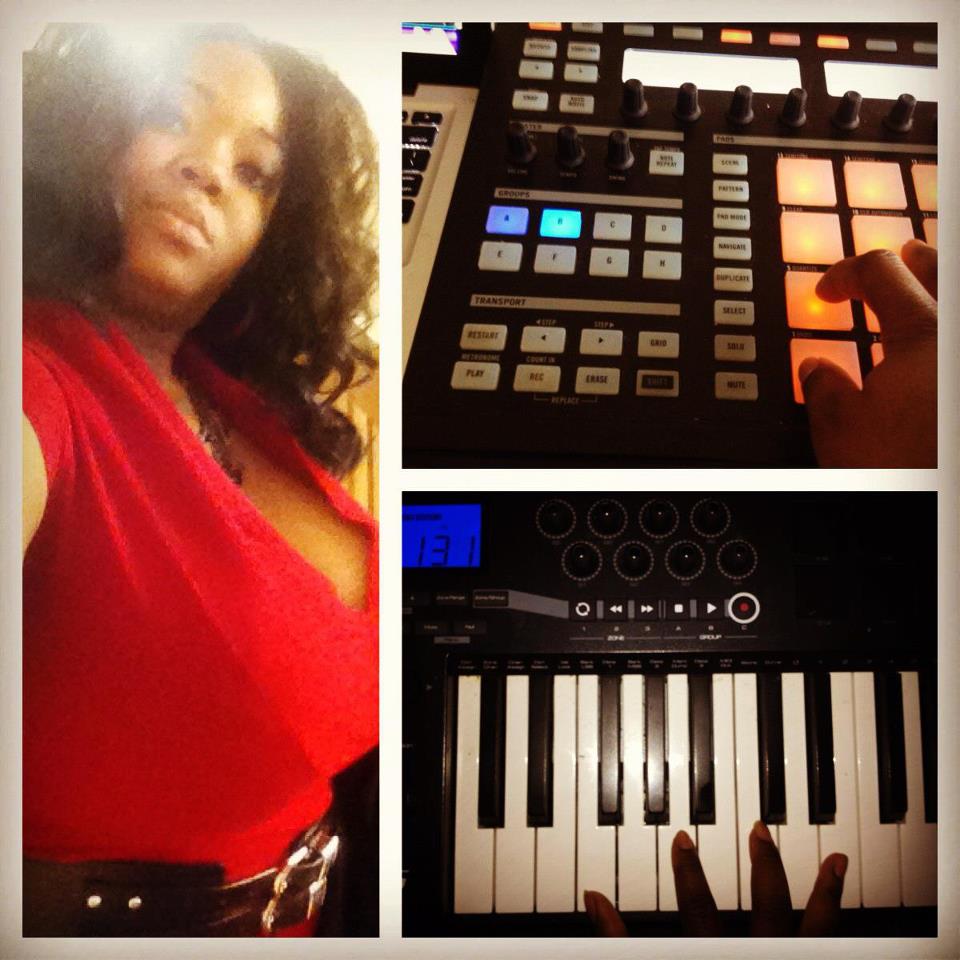
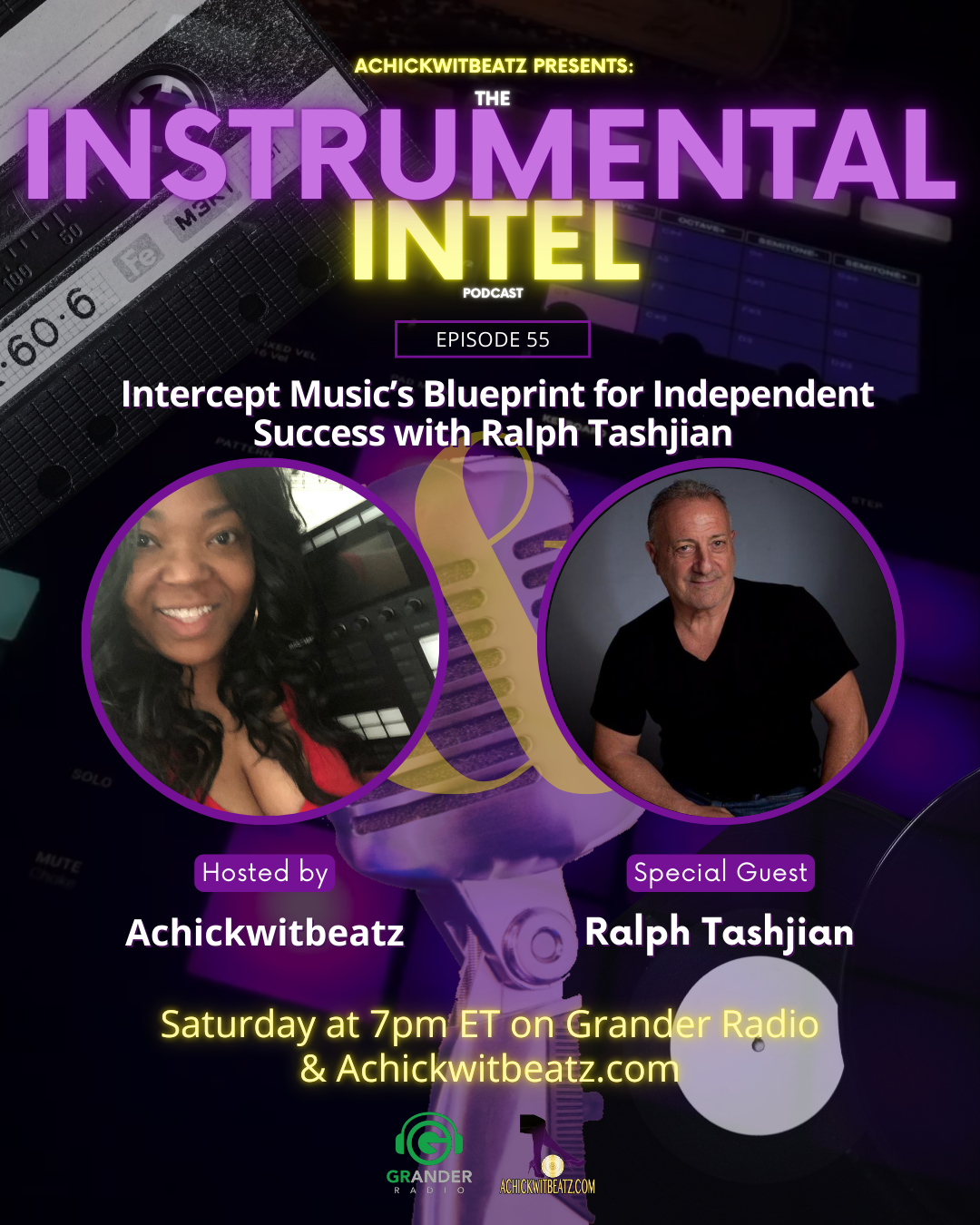






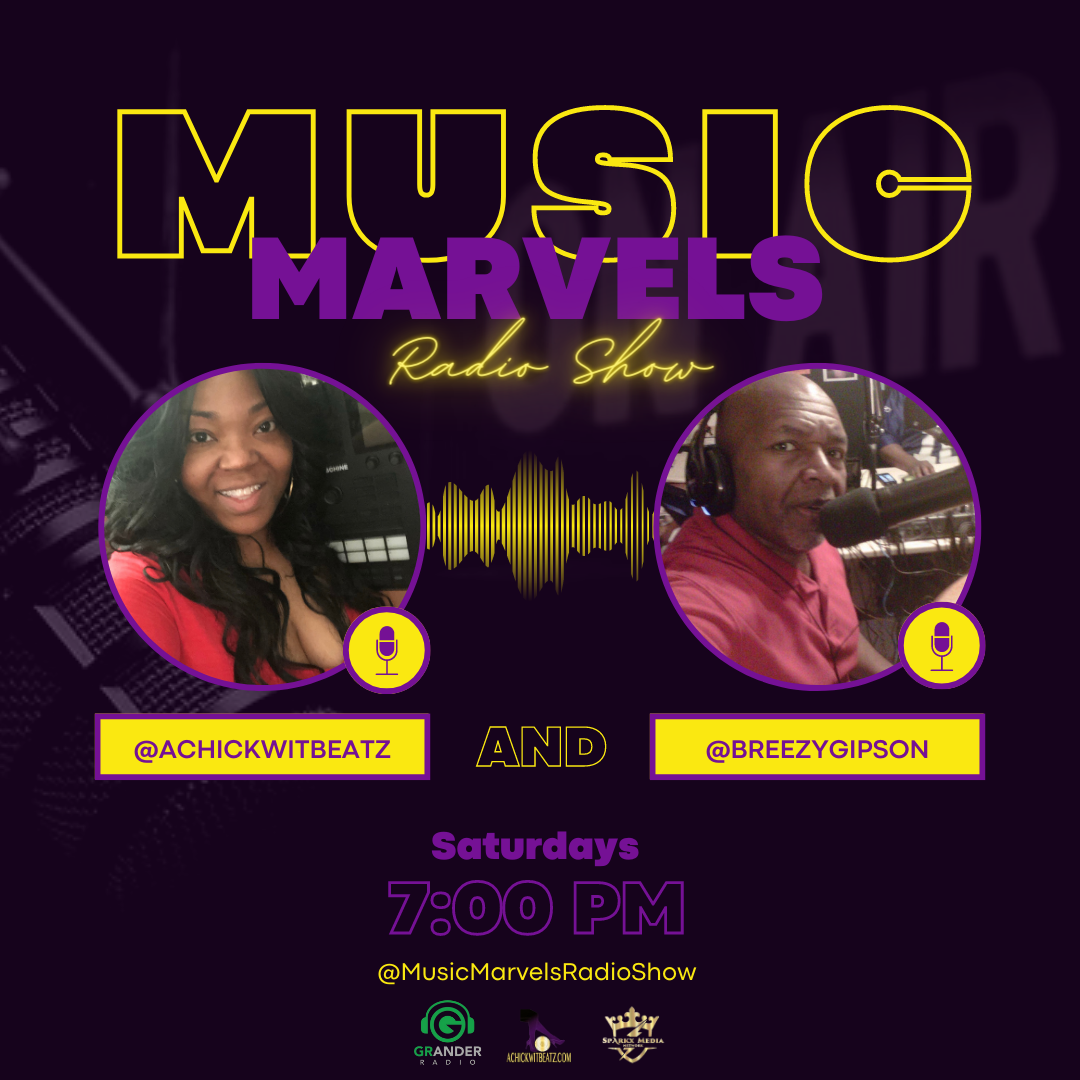
![Hear Here: Achickwitbeatz - Dopamine & Serotonin [Single]](https://images.squarespace-cdn.com/content/v1/52b0b90ae4b0293bfed0d692/1710852808557-EZYGFDIBHLBSIRFOVS1Q/Dopamine+%26+Serotonin.JPG)


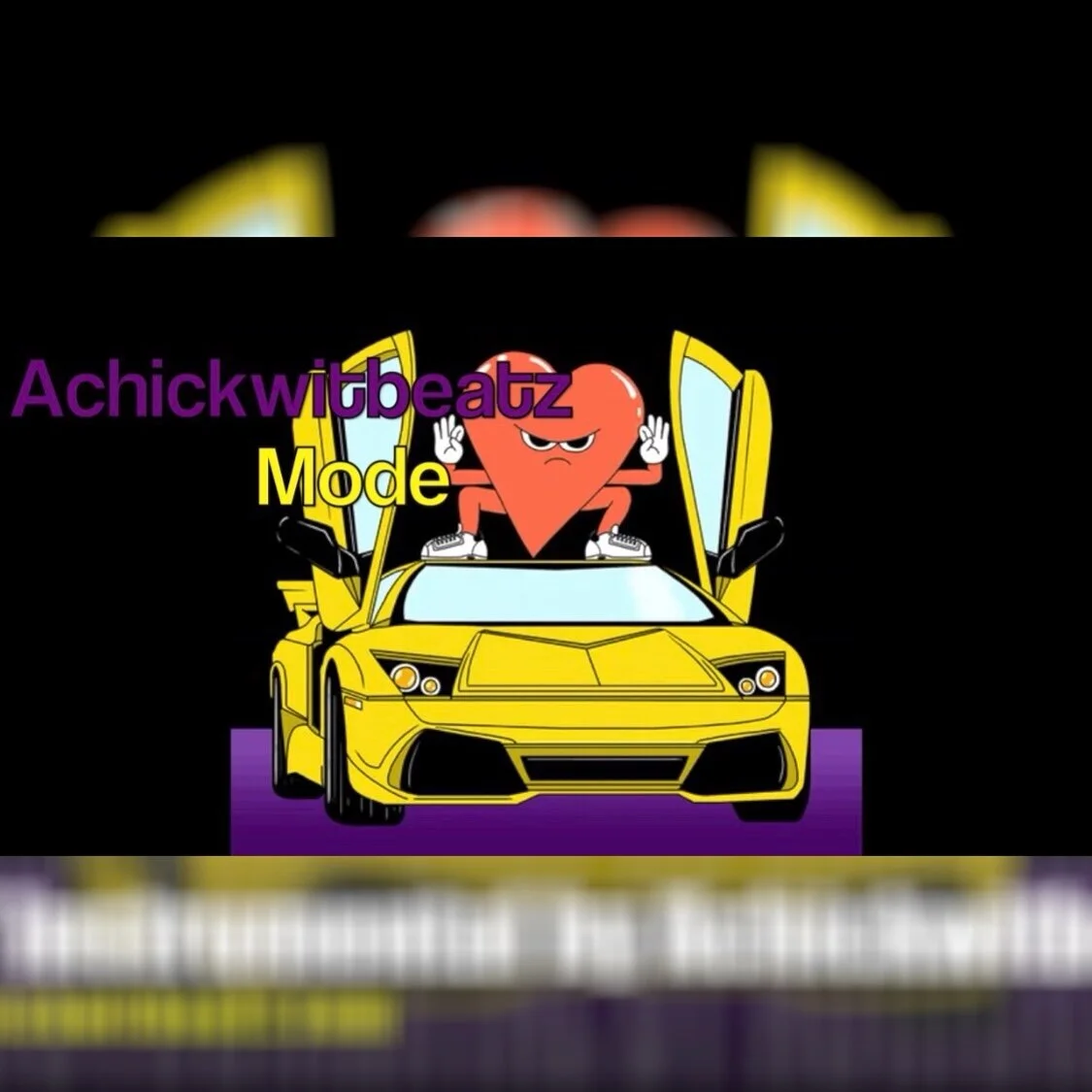
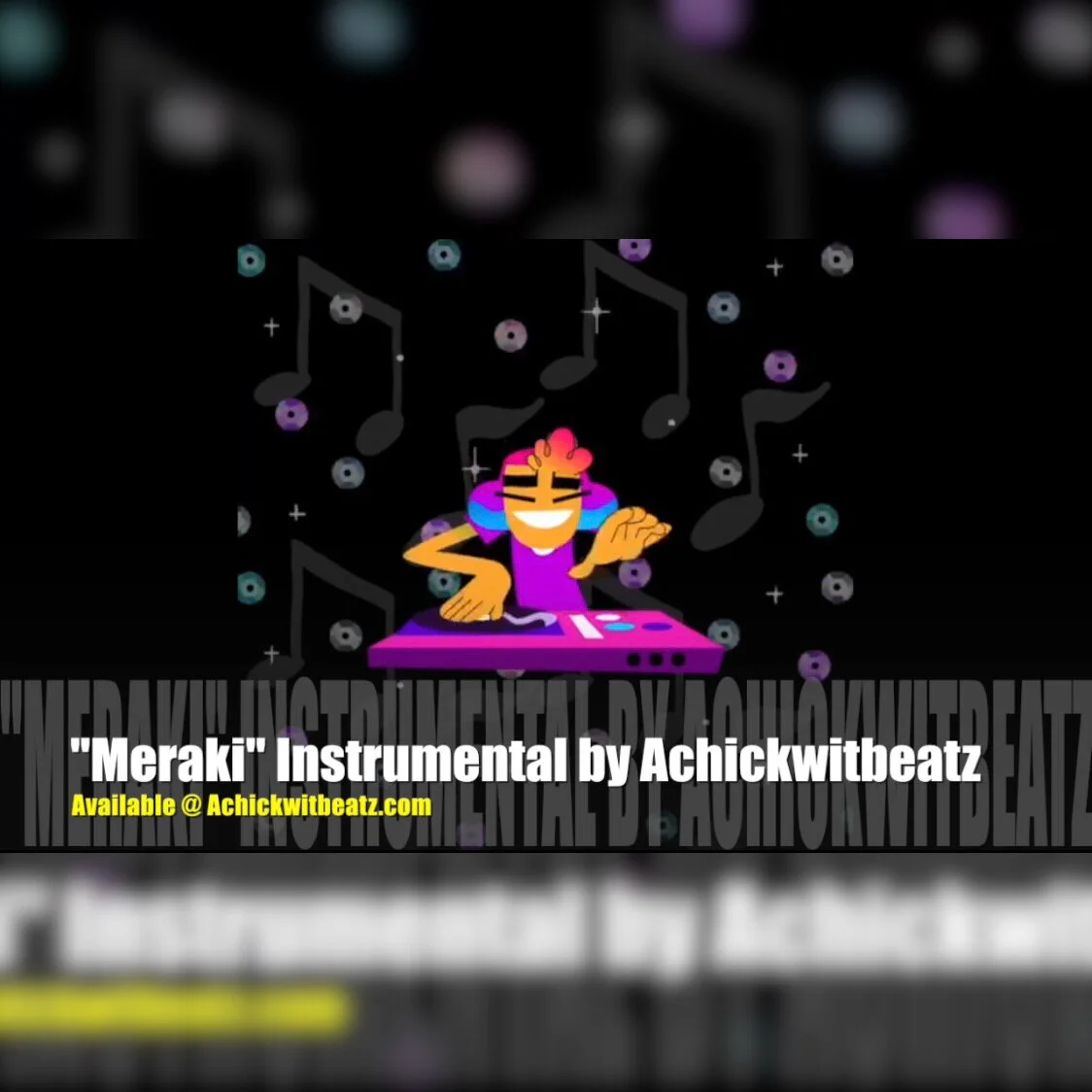





![Hear Here: Dagga Man- "Analytics" [Prod. by Achickwitbeatz]](https://images.squarespace-cdn.com/content/v1/52b0b90ae4b0293bfed0d692/1584638158548-9R55AZLWZIDFJC8LATV6/IMG_2212.JPG)







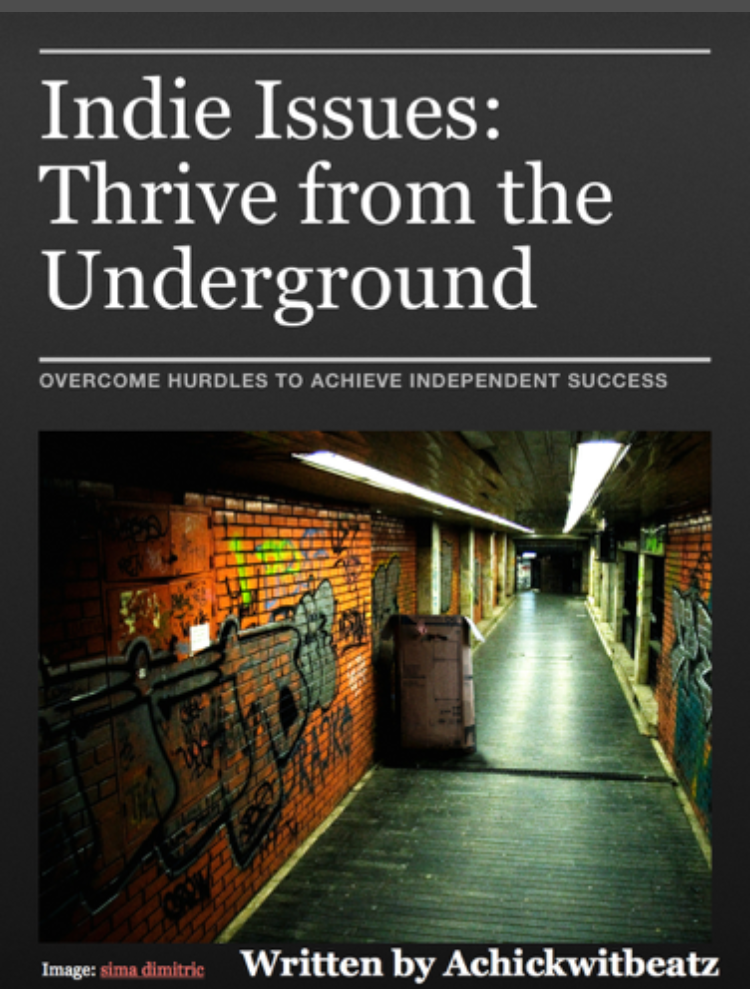
















![Making Music on a Budget [Infographic]](https://images.squarespace-cdn.com/content/v1/52b0b90ae4b0293bfed0d692/1582844361438-3JTE5NT3EL51FHXC0WJI/making-music-on_1929722%25281%2529.jpg)



